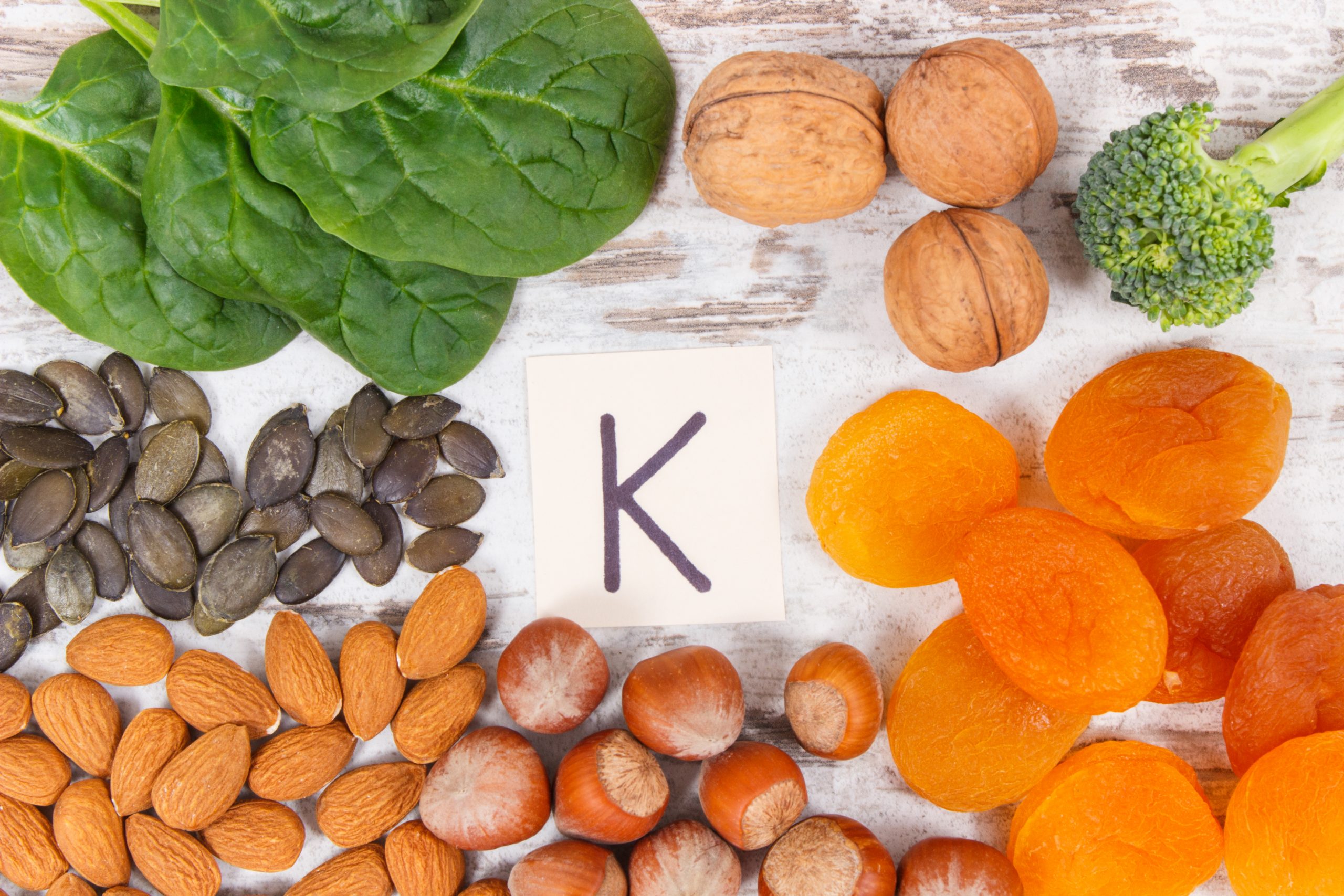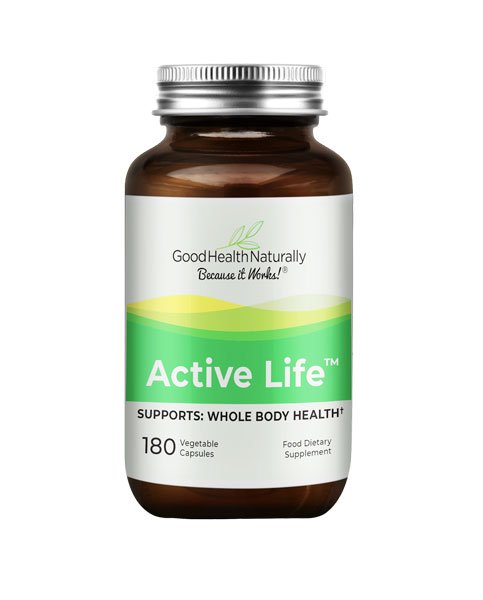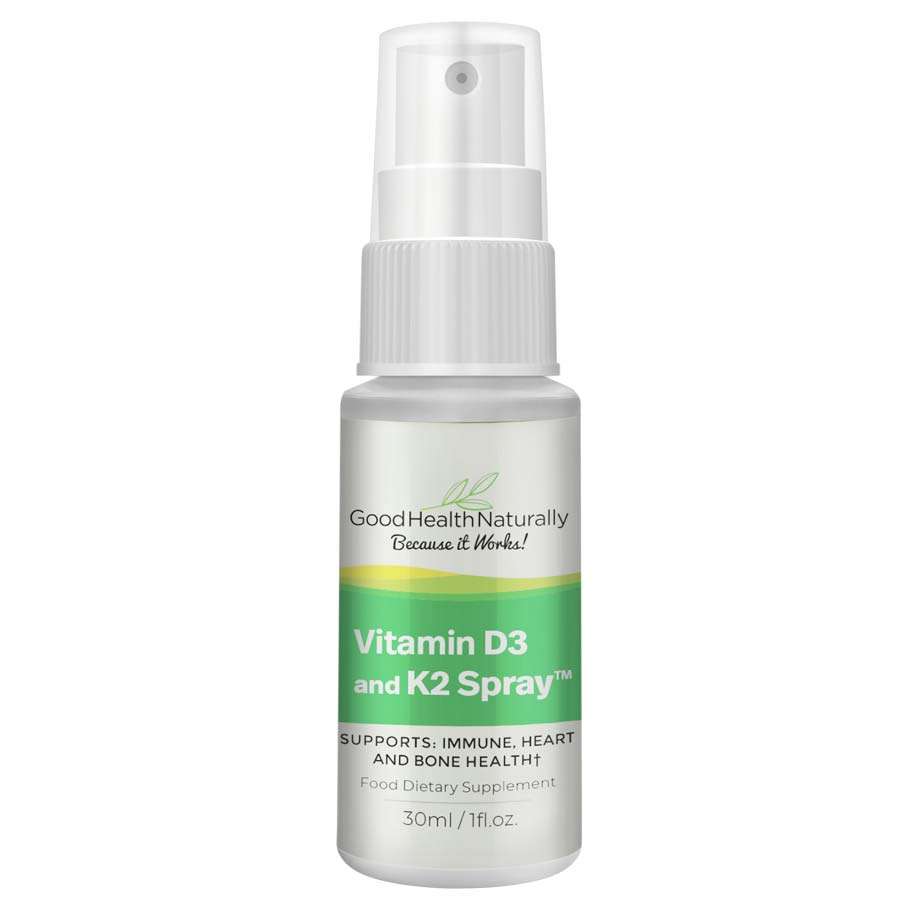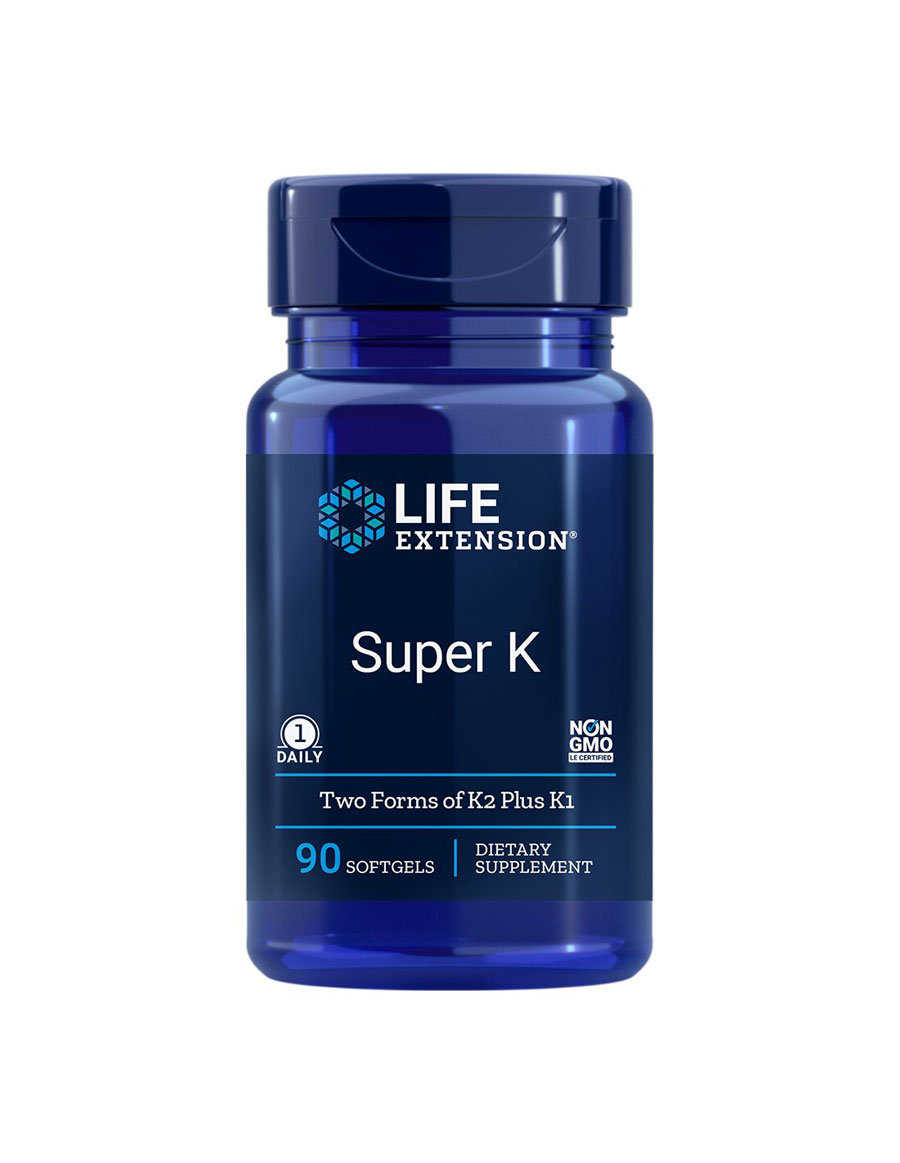We all recognise the importance of getting enough vitamins and minerals to stay healthy. Yet research shows that many of us are not getting enough Vitamin K and that this has been declining in the general population due to various factors such as poor diet, along with the use of antibiotics and statins. [1]
What Is Vitamin K?
Vitamin K is a fat-soluble vitamin that can have significant benefits for your good health. Depending upon the form of vitamin – K1 or K2 – this can provide powerful support for your bones, immune system, and more. When coupled with Vitamin D, it even has anti-cancer benefits according to research. [2]
There are three types of Vitamin K. Vitamin K1 – Phylloquinone is derived from plant sources. Vitamin K2 can be divided into several sub-compounds known as menaquinones. The two key ones are MK-4, a short-chain derived from animal sources such as meat and dairy. While MK7 is derived from fermented foods and has been shown to remain in the body longer than MK-4. Vitamin K3 (Menadione) is a synthetic version of Vitamin K that doesn’t occur naturally so is not usually recommended, whereas Vitamins K1 and K2 occur naturally and provide the most benefits.
How Do I Get Vitamin K Naturally?
Traditionally we can get Vitamin K from various natural food sources – including both plant and animal sources. Plant-based sources of Vitamin K1 include kale, mustard greens, broccoli, chard, spinach, Brussels sprouts, prunes, kiwi, green beans, avocado, and soya bean oil.
Animal-based sources of Vitamin K2 include Natto, beef liver, pork chops, chicken, pate, and hard and soft cheese. By maintaining good gut bacteria, your body is also capable of synthesizing good volumes of Vitamin K2.
What Are The Benefits Of Vitamin K1 and K2?
Taking Vitamin K1 is recommended for blood clotting, bone health, and heart health in particular. It’s also recommended for newborn babies as this can prevent a rare but potentially fatal bleeding disorder called ‘vitamin K deficiency bleeding’. [3]
By getting enough Vitamin K2, you can ensure that you support your cardiovascular health and bones. Research also shows that Vitamin K2 has significant benefits for preventing cancer. For example, research from the American Journal of Clinical Nutrition shows that people with a high intake of Vitamin K have the lowest risk of cancer and a 30 percent reduction in mortality if they do have cancer.
The trouble with Vitamin K is that it’s not so easily stored in the body. This is why you may need to replenish your levels daily.
Vitamin K’s menaquinones are known to be microbial in nature and are produced by gut bacteria. This is why Vitamin K levels can be so easily depleted by factors such as antibiotics, poor diet, and an unhealthy lifestyle.
Who Is Most Likely To Be Vitamin K Deficient?
From analyzing over 2000 households, Sarah Beth of Tufts University at Boston has examined Vitamin K in some detail. She discovered that while people over 60 are getting enough, the 18-44 age group simply don’t get enough Vitamin K – even from the low recommended daily allowance (RDA).
Other epidemiology studies such as the Boston Nurses Study involved 72,000 women over 10 years. This study demonstrated that adults with the lowest intake of Vitamin K have 30 percent more hip fractures than those who consumed the most. [4]
The current recommended daily allowance of Vitamin K is only 65 micrograms for women and 80 for men. However, this needs to be adjusted as Vitamin K is nowhere near as abundant as initially thought. New research is also highlighting the benefits of adding more Vitamin K into your diet.
Vitamin K2 For Bone Health
Research also shows that Vitamin K plays an important role in osteoporosis. In older women, Vitamin K2 has been found to reduce high levels of T-cells and control inflammation. While Vitamin K2 MK-7 activates two osteocalcin proteins that incorporate calcium into the bones. [5]
Vitamin K for Blood Sugar Metabolism
A recent study showed that older people with Type 2 Diabetes had Vitamin K levels that were 63.4% lower than healthy people of the same age. The vitamin was K1 and this can positively regulate the SIRT1/AMPK glucose metabolism pathway in the liver. [6]
Vitamin K2 For Brain Health
Vitamin K2 is renowned for its anti-aging health benefits and in boosting cognitive health. It also plays a preventive role in Alzheimer’s disease. In studies, it’s been reported that older adults who had the highest levels of Vitamin K2, also experienced the highest episodic memory scores. [7]
Vitamin K For Cardiovascular Health
Research shows that a low dietary intake of Vitamin K is associated with an increased risk of aortic calcification. There’s growing evidence that Vitamin K2 plays an important role in cardiovascular health. It can also prevent calcification of the arteries by appearing to protect against atherosclerosis and inhibiting inflammation and the accumulation of lipids and white blood cells that cause plaque formation. [8] It also activates several proteins important to the vascular system; for example, matrix-GLA- protein (MGP).
Taking Vitamin K2 is also recommended for heart health. Observational and intervention trial data shows that Vitamin K2 may reduce the mortality risk from coronary heart disease (CHD). While another study showed that taking a daily dose of 180 micrograms per day for three years inhibited age-related stiffening of artery walls and improved vascular elasticity. [9]
It’s highly recommended to take both Vitamin K1 and K2 together as this is essential for optimal health. In combination, these vitamins promote a healthy inflammatory response and provide antioxidant activity that can benefit a healthy immune system, along with cell-cycle functions, bone, and cardiovascular health.
Vitamin K for Cancer
There is a great body of research that demonstrates Vitamin K’s anti-cancer benefits. As a dependent protein, Vitamin K was found to have a cell growth-regulating factor and cell signaling activities.
Vitamin K is beneficial in the treatment of various types of cancer such as the liver, colon, stomach, leukemia, along with the lung and breast. A 2018 review found that K2 can act in many ways, encouraging differentiation to cause apoptosis to bind on mitochondrial membranes in leukemia. [10]
More research suggests that Vitamin K2 can improve the effectiveness of chemotherapy. Research from Tokyo Medical University has found that Vitamin K2 can have an in-vitro effect on lung cancer cells, squamous cells, and adenocarcinomas. Researchers also recommended K2 as a “safe medicine without prominent adverse effects including bone marrow suppression.” [11]
Vitamin K2 has many health benefits for liver cancer. Researchers of Bastyr University, Washington showed that six out of 30 patients with liver cancer had their disease stabilized after taking Vitamin K. While another study from Dr. Koike at Tokyo University has indicated that Vitamin K can slow the spread of liver cancer.
For example, 50 percent of patients treated with Vitamin K were alive two years after the test started – whereas only 29 percent of the control group were. There have also been a good number of liver cancer studies, with one showing that postoperative use of K2 stabilized liver cancer. [12, 13]
By having multiple effects on liver cancer, Vitamin K2 affects growth receptors and signaling molecules, preventing liver cancer growth. It does this by stopping its replication, freezing the cell cycle, and causing cell death.
Other Vitamin K Health Benefits
Recent studies even highlight how Vitamin K may be beneficial for CV-19 after discovering a link between deficiency and worst CV outcomes. [14]
Vitamin K and D In Combination
Supplementing with both Vitamin K2 and Vitamin D3 can benefit both your cardiovascular and bone health. A review by Dutch researchers has also shown that Vitamin D promotes the production of proteins that require Vitamin K for activation. By combining both vitamins, it has greater health benefits than simply using them on their own. [15]
Getting Enough Vitamin K2
Eating enough green leafy vegetables, dairy and fermented foods containing Vitamin K2 as listed above, is recommended to ensure that you meet your daily allowance. However, it’s impossible to achieve the levels of Vitamin K used in this research from these foods alone. Therefore, it’s recommended to take a Vitamin K1/K2 supplement to support your good health.
Is Vitamin K2 Safe?
It is safe to take Vitamin K2 even at 500 times the recommended daily allowance. It is not toxic so there are few problems with dosage. Research suggests that people looking to prevent health problems should start taking daily doses of 180mcg of Vitamin K2 – preferably K2 MK-7.
There are a range of Vitamin K supplements that can support your good health. Below we have listed our product recommendations, so you can find the best Vitamin K supplement to suit your lifestyle and health needs.
REFERENCES:
[1] https://pubmed.ncbi.nlm.nih.gov/12554916/
[2] https://www.sciencedaily.com/releases/2020/06/200610102728.htm
[3] https://www.ncbi.nlm.nih.gov/pmc/articles/PMC3021393/
[4] https://pubmed.ncbi.nlm.nih.gov/10799384/
[5] https://asbmr.onlinelibrary.wiley.com/doi/full/10.1359/jbmr.2000.15.3.515
[6] https://pubmed.ncbi.nlm.nih.gov/29175667/
[7] https://pubmed.ncbi.nlm.nih.gov/23850343/
[9] https://pubmed.ncbi.nlm.nih.gov/27951533/
[10] https://pdfs.semanticscholar.org/f2ba/7ee7a3918d4d888982d327c7e6c7e63fe42d.pdf
[11] https://pubmed.ncbi.nlm.nih.gov/12888897/
[12] https://acsjournals.onlinelibrary.wiley.com/doi/full/10.1002/cncr.21667
[13] https://pubmed.ncbi.nlm.nih.gov/17376044/
[14] https://www.tandfonline.com/doi/full/10.1080/00365513.2020.1805122
[15] https://www.maastrichtuniversity.nl/research/school-cardiovascular-diseases
Recommended Examples
Active Life™
Active Life™ – A full-spectrum multivitamin/mineral formula containing 130 nutrients in one capsule. Contains 80mcg of Vitamin K2 (Menaquinone). Provides high antioxidant content. Uses the biologically Active Quatrefolic® Folate. Suitable for vegetarians. 180 capsules. Available from Good Health Naturally.
Vitamin D3/K2 Spray™
Vitamin D3/K2 Spray™ – Provides 1000IU Vitamin D3 and 100mcg of Vitamin K2 MK7 per serving. Take 5 sprays per day, orally or sprayed onto food, or as directed by your healthcare professional. Best taken with food. Supports normal immune system response and may also benefit skin health. Provides better calcium and phosphorus absorption in the blood and bones. Vegan and vegetarian-friendly Vitamin D3. Available from Good Health Naturally.
Super K
Super K – Provides two forms of Vitamin K – K1 and K2. Total Vitamin K activity is 2600mcg: Vitamin K1: 1500mcg, Vitamin K2 (as menaquinone-4): 1000mcg and Vitamin K2 (as all-trans menaquinone-7): 100mcg. Clinical studies show that Vitamin K plays a vital role in bone health and maintaining bone density. Supports the cardiovascular system. Reduces calcium deposition and may prevent conditions such as osteoporosis. Available from Good Health Naturally.








